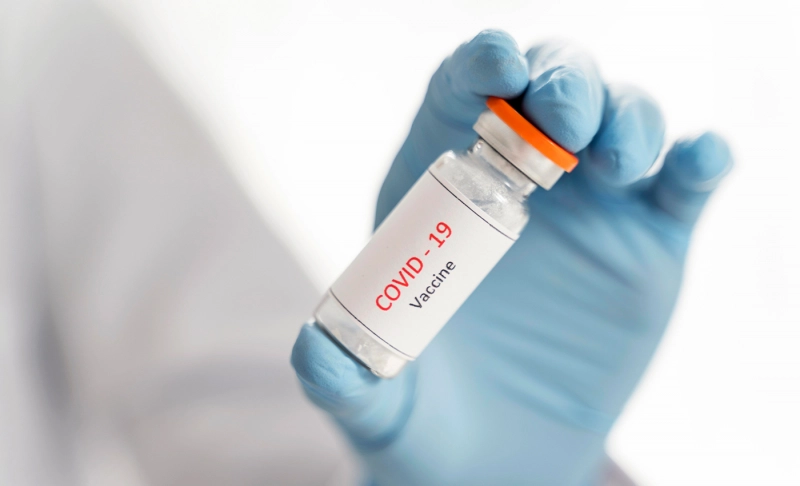By: Annie Priya
April 29 2021

The results are restricted to Pfizer-BioNTech or AstraZeneca vaccines and in the case of passing on the infection to household contacts.
The results are restricted to Pfizer-BioNTech or AstraZeneca vaccines and in the case of passing on the infection to household contacts. The claim that a single dose of the COVID-19 vaccine can nearly halve the transmission of the virus is Partly True On April 28, a study by Public Health England found that people that those who received one jab of the Pfizer-BioNTech or AstraZeneca vaccine and got infected three weeks after were between 38% and 49% less likely to pass the virus to their "household contacts" than those who were not vaccinated. PHE said similar results could be expected in places such as shared accommodation and prisons. According to the report, a similar level of protection could be seen only 14 days after getting vaccinated. It was regardless of the age of cases or contacts. It adds that this immunity is on top of the "reduced risk of a vaccinated person developing a symptomatic infection in the first place, which is around 60 to 65% – 4 weeks after one dose of either vaccine." According to the Centers for Disease Control and Prevention, vaccines work in various ways to provide protection. The vaccine would take a few weeks for the body to produce T-lymphocytes and B-lymphocytes to fight against the COVID-19 virus. As a result, it is possible that a person could become infected with the virus that causes COVID-19 just before or just after vaccination and then become ill due to the vaccine failing to provide adequate protection. Dr. Mary Ramsay, head of immunization at PHE, says: "Vaccines are vital in helping us return to a normal way of life. Not only do vaccines reduce the severity of illness and prevent hundreds of deaths every day, but we now see they also have an additional impact on reducing the chance of passing COVID-19 on to others." According to BBC, many experts opined that the current vaccines against the COVID-19 would significantly protect, especially against severe illness. According to the World Health Organization, even though a protective effect starts to develop 12 days after the first dose, it is mandatory to take the second dose for complete protection. However, the results of the report are restricted to Pfizer-BioNTech or AstraZeneca vaccines, and old hold true in places with shared accommodation like houses, prisons, etc, therefore we cannot generalize the results of the reports for all the vaccines. The COVID-19 pandemic has given rise to a lot of potentially dangerous misinformation. For reliable advice on COVID-19 including symptoms, prevention and available treatment, please refer to the World Health Organisation or your national healthcare authority.